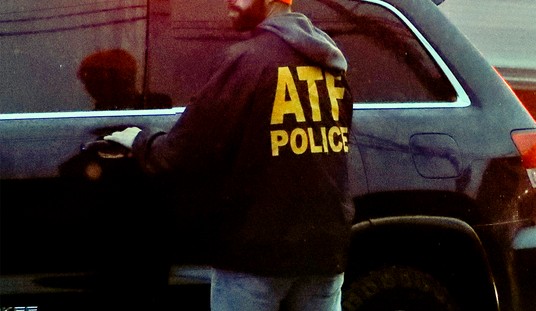
Recently, the Bureau of Tobacco, Alcohol, Firearms and Explosives, also known by its old initials ATF, has been on the receiving end of a myriad of criticism.
The facts revealed about ATF’s Operation Fast and Furious during last month’s congressional hearing have been the source of considerable public scrutiny. This is only one of many instances when ATF has acted recklessly and irresponsibly.
Like many aspects of the federal government, ATF has a long history of corruption.
Established under the Department of the Treasury, ATF was originally meant to serve as a tax-collecting agency, operating independently of the IRS. Today, ATF is also expected to enforce the growing number of laws regulating alcohol, tobacco, and firearms.
After the creation of the Department of Homeland Security, ATF separated from the Treasury Department and was transferred to the Department of Justice with the intent that the agency’s law enforcement role would be carried out more efficiently and effectively under the DOJ.
According to ATF’s mission statement, the agency is committed to protecting our communities from violent criminals, criminal organizations, and the illegal use and trafficking of firearms.
However, now and in the past, ATF has failed to accomplish these aims without throwing civilians, quite deliberately, in harm’s way.
In the late 1980s, Randy Weaver and his family became the targets of a federal investigation after the FBI and Secret Service learned of Weaver’s alleged involvement in the white supremacist movement.
In 1990, Weaver was approached by an ATF informant Kenneth Fadeley. Fadeley convinced Weaver to shorten the barrels on two shotguns and sell them to him. Once in possession of the firearms, ATF brought charges against Weaver, citing that the length of the guns did not comply with federal law. ATF tried to cut a deal with Weaver, saying that if he became an informant, the charges would be dropped. Weaver denied the truth of the charges and rejected ATF’s proposal.
Weaver’s refusal to cooperate prompted ATF to report false information about him to other agencies involved, leading the government to label him as an extremely dangerous criminal. Because of this misinformation, Weaver was summoned to court, which he missed due to a U.S. Probation Officer mistakenly telling him the wrong date. This resulted in a violent confrontation between the Weaver family and the U.S. Marshals and FBI, leaving four dead – a U.S. Marshal, Weaver’s 14-year-old son Samuel, his wife Vicki, and his pet dog.
Had it not been for ATF’s dishonesty, the bloody siege at Ruby Ridge would not have occurred.

Randy Weaver with the door from his Ruby Ridge, Idaho cabin, where an FBI sniper working with ATF agents killed his wife Vicki, son Samuel and dog Striker during a three-day raid and stand-off in August 1992. The FBI sniper Lon Horiuchi was charged with the murder of Vicki, whom he shot in the head as she stood unarmed in the doorway holding her baby daughter Elisheba. Those charges were later dropped.
In a similar display of irresponsibility, ATF’s failure to execute a search warrant at the Branch Davidian ranch in Waco, Texas led to a 50-day siege, which ultimately led to the deaths of 76 people – more than 20 of which were children.
There have been many reports of ATF directors and agents behaving badly.
In 2002, the chief of the ATF Iowa Field Office was arrested for public intoxication after threatening a group of teenagers with a loaded gun.
More recently, in 2008, an ATF special agent was charged with hitting a woman with his vehicle and leaving the scene of an accident.
Also in 2008, an audit was released in which the DOJ reported that 76 firearms were lost, stolen, or missing from ATF between 2002 and 2007.
In 2009, the director of industry operations at ATF of Houston was arrested after a trip to New Orleans for official business. According to reports, Russell Vander Werf disabled a hotel fire alarm and replaced a bedroom door with a piece of plywood containing a “glory hole”. Instead of firing Vander Werf, ATF simply reassigned him to the field office in Washington.
In 2010, an ATF agent was charged with second-degree murder after he emptied his gun on a neighbor in the U.S. Virgin Islands.
Also in 2010, an agent was convicted of stealing money from a house during a drug raid. Another agent was charged with conspiracy to distribute and possession of illegal drugs, money laundering, and possession of a firearm during a drug trafficking offense.
If we cannot trust these people to abide by the law, how can we trust that they will ensure others are abiding by the law?
Now, in the wake of yet another ATF scandal, it is especially clear that we need to take action to reform the Bureau of Alcohol, Tobacco, Firearms and Explosives.
The number of negative incidents involving ATF seems to be growing; yet the agency itself is still expanding. Expansion means increased regulation, which is a concern – especially in regards to firearms.
Last November, President Obama nominated Andrew Traver to become the new ATF director. But, confirmation of that nomination by the Senate is not likely soon, considering the significant opposition by gun rights advocates and senators concerned about Traver’s support of greater regulation of firearms and the firearm culture.








Join the conversation as a VIP Member